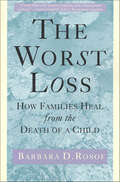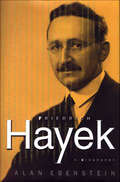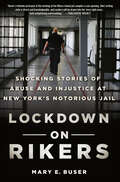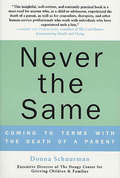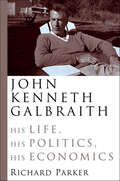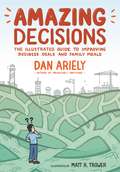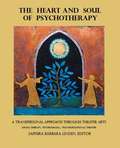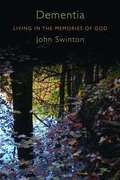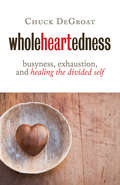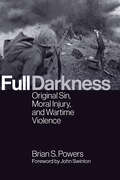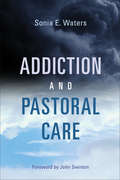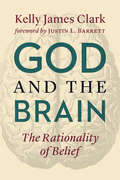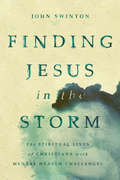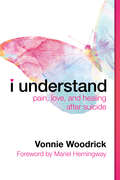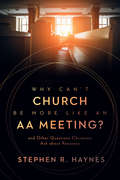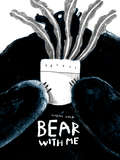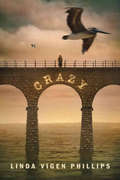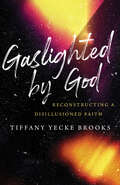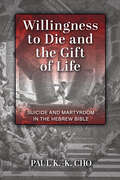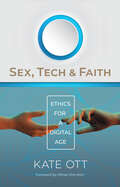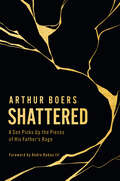- Table View
- List View
The Worst Loss: How Families Heal from the Death of a Child
by Barbara D. RosofThe death of a child is like no other loss. Barbara D. Rosof's The Worst Loss will help families who have experienced this to know what they are facing, understand what they are feeling, and appreciate their own needs and timetables.
Friedrich Hayek: A Biography
by Alan EbensteinThis biography tells the story of one of the most important public figures of the twentieth century, Friedrich Hayek.Here is the first full biography of Friedrich Hayek, the Austrian economist who became, over the course of a remarkable career, the great philosopher of liberty in our time. In this richly detailed portrait, Alan Ebenstein chronicles the life, works, and legacy of a visionary thinker, from Hayek's early years as the scholarly son of a physician in fin-de-siecle Vienna on an increasingly wider world as an economist and political philosopher in London, New York, and Chicago.Ebenstein gives a balanced, integrated account of Hayek's extraordinary diverse body of work, from his fist encounter with the free market ideas of mentor Ludwig Von Mises to his magisterial writings in later life on the legal, political, ethical, and economic requirements of a free society. Awarded the Nobel Prize in 1974, Hayek's vision of a renewed classical liberalism-of free markets and free ideas in free societies-has taken hold in much of the world.Alan Ebenstein's clearly written account is an essential starting point for anyone seeking to understand why Hayek's ideas have become the guiding force of our time. His illuminating portrait of Hayek the man brings to new life the spirit of a great scholar and tenacious advocate who has become, in Peter Drucker's words, "our time's preeminent social philosopher."
Lockdown on Rikers: Shocking Stories of Abuse and Injustice at New York's Notorious Jail
by Mary E. BuserMary Buser began her career at Rikers Island as a social work intern, brimming with ideas and eager to help incarcerated women find a better path. Her reassignment to a men's jail coincided with the dawn of the city's "stop-and-frisk" policy, a flood of unprecedented arrests, and the biggest jailhouse build-up in New York City history.Committed to the possibility of growth for the scarred and tattooed masses who filed into her session booth, Buser was suddenly faced with black eyes, punched-out teeth, and frantic whispers of beatings by officers. Recognizing the greater danger of pointing a finger at one's captors, Buser attempted to help them, while also keeping them as well as herself, safe. Following her promotion to assistant chief, she was transferred to different jails, working in the Mental Health Center, and finally, at Rikers's notorious "jail within jail," the dreaded solitary confinement unit, where she saw horrors she'd never imagined. Finally, it became too much to bear, forcing Buser to flee Rikers and never look back - until now.Lockdown on Rikers shines a light into the deepest and most horrific recesses of the criminal justice system, and shows how far it has really drifted from the ideals we espouse.
Never the Same
by Donna SchuurmanChildren and teens who experience the death of a parent are never the same. Only in the last decade have counselors acknowledged that children grieve too, and that unresolved issues can negatively impact children into adulthood. Unaddressed grief can lead to depression, substance abuse, and relationship difficulties. For at least three generations of adults, these issues have been largely ignored. Having worked with thousands of families as Executive Director of the Dougy Center for Grieving Children, Donna Schuurman understands the dangers of unresolved grief better than anyone else. In Never the Same, Schuurman offers expert advice and encouragement to empower readers to reflect on their unique situation, come to terms with the influence of their parent's death, and live more healthful, peaceful lives.The only book of its kind, Never the Same is an essential companion for those still struggling with the early loss of a parent.
John Kenneth Galbraith: His Life, His Politics, His Economics
by Richard ParkerThe life and times of America's celebrated economist, assessing his lessons-and warnings-for us today.John Kenneth Galbraith's books—among them The Affluent Society and American Capitalism—are famous for good reason. Written by a scholar renowned for energetic political engagement and irrepressible wit, they are models of provocative good sense that warn prophetically of the dangers of deregulated markets, war in Asia, corporate greed, and stock-market bubbles. Galbraith's work has also deeply-and controversially-influenced his own profession, and in Richard Parker's hands his biography becomes a vital reinterpretation of American economics and public policy.Born and raised on a small Canadian farm, Galbraith began teaching at Harvard during the Depression. He was FDR's "price czar" during the war and then a senior editor of Fortune before returning to Harvard and to fame as a bestselling writer. Parker shows how, from his early championing of Keynes to his acerbic analysis of America's "private wealth and public squalor," Galbraith regularly challenged prevailing theories and policies. And his account of Galbraith's remarkable friendship with John F. Kennedy, whom he served as a close advisor while ambassador to India, is especially relevant for its analysis of the intense, dynamic debates that economists and politicians can have over how America should manage its wealth and power. This masterful chronicle gives color, depth, and meaning to the record of an extraordinary life.
Amazing Decisions: The Illustrated Guide to Improving Business Deals and Family Meals
by Dan ArielyDan Ariely, the New York Times bestselling author of Predictably Irrational, and illustrator Matt R. Trower present a playful graphic novel guide to better decision-making, based on the author’s groundbreaking research in behavioral economics, neuroscience, and psychology. The internationally renowned author Dan Ariely is known for his incisive investigations into the messy business of decision-making. Now, in Amazing Decisions, his unique perspective—informed by behavioral economics, neuroscience, and psychology—comes alive in the graphic form. The illustrator Matt R. Trower’s playful and expressive artwork captures the lessons of Ariely’s groundbreaking research as they explore the essential question: How can we make better decisions?Amazing Decisions follows the narrator, Adam, as he faces the daily barrage of choices and deliberations. He juggles two overlapping—and often contradictory—sets of norms: social norms and market norms. These norms inform our thinking in ways we often don’t notice, just as Adam is shadowed by the “market fairy” and the “social fairy,” each compelling him to act in certain ways. Good decision-making, Ariely argues, requires us to identify and evaluate the forces at play under different circumstances, leading to an optimal outcome. Amazing Decisions is a fascinating and entertaining guide to developing skills that will prove invaluable in personal and professional life.
The Heart And Soul Of Psychotherapy: A Transpersonal Approach Through Theater Arts
by Saphira Barbara LindenThis book offers an innovative approach to healing and transformation through application of the 12 transpersonal drama therapy principles. It demonstrates a host of therapeutic techniques integrating the arts with meditation as clients heal traumatic memories and shift their identities from a conditioned, limited sense of self to the essential Self, or soul Self. <p><p> Thirty-nine of Ms. Linden’s students and colleagues demonstrate how they have applied the 12 principles to a wide array of populations in need. Collectively, they have reached all ages, many diverse backgrounds, and a range of life circumstances and health conditions -- in private practice, community-based organizations, institutions, events, disaster relief and international venues. Throughout the 30 years of the formal life of the dramatherapy profession, Saphira and her colleagues have been gradually building and developing an integrated, profound, joyous, and generative practice through Omega Theater and ’s Drama Therapy Training Institute, and this book is a culminating demonstration of this amazing work and these amazing people. <p> Their work is built on strong foundations, represented by the wonderful forwards by Zerka Moreno, Ellen Burstyn, and Pir Zia Inayat Khan. They are the roots... Saphira is the trunk... and the chapters are the bloom, of the transpersonal approach to psychotherapy integrating the arts. It has been a privilege for me to witness this process unfold and now to benefit from the remarkable work described in this book.
Dementia: Living In The Memories Of God
by John Swinton<P>In this book John Swinton develops a practical theology of dementia for caregivers, people with dementia, ministers, hospital chaplains, and medical practitioners as he explores two primary questions: <br>Who am I when I've forgotten who I am? <br>What does it mean to love God and be loved by God when I have forgotten who God is? <P>Offering compassionate and carefully considered theological and pastoral responses to dementia and forgetfulness, Swinton's Dementia: Living in the Memories of God redefines dementia in light of the transformative counter story that is the gospel.
Wholeheartedness: Busyness, Exhaustion, and Healing the Divided Self
by Chuck DeGroatI&’m being pulled in a thousand different directions. As a therapist, Chuck DeGroat hears that line all the time. &“I hear it from students and software developers,&” he says. &“I hear it from spiritual leaders and coffee baristas. And I hear it from my own inner self.&” We all feel that nasty pull to and fro, the frantic busyness that exhausts us and threatens to undo us. And we all think we know the solution — more downtime, more relaxation, more rest. And we&’re all wrong. As DeGroat himself has discovered, the real solution to what pulls us apart is wholeheartedness, a way of living and being that can transform us from the inside out. And that&’s what readers of this book will discover too.
Wholeheartedness: Busyness, Exhaustion, and Healing the Divided Self
by Chuck DeGroatI’m being pulled in a thousand different directions. As a therapist, Chuck DeGroat hears that line all the time. “I hear it from students and software developers,” he says. “I hear it from spiritual leaders and coffee baristas. And I hear it from my own inner self.” We all feel that nasty pull to and fro, the frantic busyness that exhausts us and threatens to undo us. And we all think we know the solution — more downtime, more relaxation, more rest. And we’re all wrong. As DeGroat himself has discovered, the real solution to what pulls us apart is wholeheartedness, a way of living and being that can transform us from the inside out. And that’s what readers of this book will discover too.
Full Darkness: Original Sin, Moral Injury, and Wartime Violence
by Brian S. PowersA theological treatment of war, trauma, and the fundamental character of human existence In Full Darkness theologian and wartime veteran Brian Powers argues that the Augustinian concept of original sin can illuminate the nature of wartime violence, particularly through the lens of veteran trauma. He shows precisely how sin and war both cause human identity, agency, and hope to be lost.Powers explores sin as a pathogenic disfigurement that shapes cultural values and ethical ideas, frequently resulting in moral injury. Combat veterans experience a humanity deprived of grace and are devoured by the forces of war, often suffering post-traumatic stress disorder. But Powers provides a ray of hope and a path towards healing.Ideal for veterans, chaplains, and pastors, Full Darkness offers a new perspective on the cultural understanding of military violence, provides theological help for those drowning in guilt and shame, and paves the way for reclaiming positive human agency and identity.
Addiction and Pastoral Care
by Sonia E. WatersA timely resource treating addiction holistically as both a spiritual and a pathological conditionSubstance addictions present a unique set of challenges for pastoral care. In this book Sonia Waters weaves together personal stories, research, and theological reflection to offer helpful tools for ministers, counselors, chaplains, and anyone else called to care pastorally for those struggling with addiction.Waters uses the story of the Gerasene demoniac in Mark&’s Gospel to reframe addiction as a &“soul-sickness&” that arises from a legion of individual and social vulnerabilities. She includes pastoral reflections on oppression, the War on Drugs, trauma, guilt, discipleship, and identity. The final chapters focus on practical-care skills that address the challenges of recovery, especially ambivalence and resistance to change.
Full Darkness: Original Sin, Moral Injury, and Wartime Violence
by John Swinton Brian S. PowersA theological treatment of war, trauma, and the fundamental character of human existence In Full Darkness theologian and wartime veteran Brian Powers argues that the Augustinian concept of original sin can illuminate the nature of wartime violence, particularly through the lens of veteran trauma. He shows precisely how sin and war both cause human identity, agency, and hope to be lost.Powers explores sin as a pathogenic disfigurement that shapes cultural values and ethical ideas, frequently resulting in moral injury. Combat veterans experience a humanity deprived of grace and are devoured by the forces of war, often suffering post-traumatic stress disorder. But Powers provides a ray of hope and a path towards healing.Ideal for veterans, chaplains, and pastors, Full Darkness offers a new perspective on the cultural understanding of military violence, provides theological help for those drowning in guilt and shame, and paves the way for reclaiming positive human agency and identity.
Addiction and Pastoral Care
by John Swinton Sonia E. WatersA timely resource treating addiction holistically as both a spiritual and a pathological conditionSubstance addictions present a unique set of challenges for pastoral care. In this book Sonia Waters weaves together personal stories, research, and theological reflection to offer helpful tools for ministers, counselors, chaplains, and anyone else called to care pastorally for those struggling with addiction.Waters uses the story of the Gerasene demoniac in Mark’s Gospel to reframe addiction as a “soul-sickness” that arises from a legion of individual and social vulnerabilities. She includes pastoral reflections on oppression, the War on Drugs, trauma, guilt, discipleship, and identity. The final chapters focus on practical-care skills that address the challenges of recovery, especially ambivalence and resistance to change.
God and the Brain: The Rationality of Belief
by Kelly James ClarkDoes cognitive science show that religious belief is irrational?Kelly James Clark brings together science and philosophy to examine some of humanity&’s more pressing questions. Is belief in God, as Richard Dawkins claims, a delusion? Are atheists smarter or more rational than religious believers? Do our genes determine who we are and what we believe? Can our very creaturely cognitive equipment help us discover truth and meaning in life? Are atheists any different from Mother Teresa? Clark&’s surprising answers both defend the rationality of religious belief and contribute to the study of cognitive science.God and the Brain explores complicated questions about the nature of belief and the human mind.Scientifically minded, philosophically astute, and reader-friendly, God and the Brain provides an accessible overview of some new cognitive scientific approaches to the study of religion and evaluates their implications for both theistic and atheistic belief.
God and the Brain: The Rationality of Belief
by Kelly James ClarkDoes cognitive science show that religious belief is irrational?Kelly James Clark brings together science and philosophy to examine some of humanity&’s more pressing questions. Is belief in God, as Richard Dawkins claims, a delusion? Are atheists smarter or more rational than religious believers? Do our genes determine who we are and what we believe? Can our very creaturely cognitive equipment help us discover truth and meaning in life? Are atheists any different from Mother Teresa? Clark&’s surprising answers both defend the rationality of religious belief and contribute to the study of cognitive science.God and the Brain explores complicated questions about the nature of belief and the human mind.Scientifically minded, philosophically astute, and reader-friendly, God and the Brain provides an accessible overview of some new cognitive scientific approaches to the study of religion and evaluates their implications for both theistic and atheistic belief.
Finding Jesus in the Storm: The Spiritual Lives of Christians with Mental Health Challenges
by John SwintonPeople living with mental health challenges are not excluded from God&’s love or even the fullness of life promised by Jesus. Unfortunately, this hope is often lost amid the well-meaning labels and medical treatments that dominate the mental health field today. In Finding Jesus in the Storm, John Swinton makes the case for reclaiming that hope by changing the way we talk about mental health and remembering that, above all, people are people, regardless of how unconventionally they experience life. Finding Jesus in the Storm is a call for the church to be an epicenter of compassion for those experiencing depression, schizophrenia, bipolar disorder, and related difficulties. That means breaking free of the assumptions that often accompany these diagnoses, allowing for the possibility that people living within unconventional states of mental health might experience God in unique ways that are real and perhaps even revelatory. In each chapter, Swinton gives voice to those experiencing the mental health challenges in question, so readers can see firsthand what God&’s healing looks like in a variety of circumstances. The result is a book about people instead of symptoms, description instead of diagnosis, and lifegiving hope for everyone in the midst of the storm.
I Understand: Pain, Love, and Healing after Suicide
by Vonnie WoodrickTime doesn&’t heal—love heals When Vonnie Woodrick lost her husband Rob to suicide in 2003, she was faced with a series of decisions. How would she move on? How would she support and raise her three children as a young widow? How would she talk about Rob and honor his memory? These questions had no easy answers, but Vonnie found herself longing for one thing in particular: understanding. The stigma of mental illness loomed large over Rob&’s death and made healing difficult. But Vonnie found the common assumptions surrounding suicide to be false. Rob was not &“crazy.&” He did not choose to take his own life. He was in agony and only wanted the pain to end. His death was a direct result of his mental illness. Why didn&’t more people understand this? Over a decade later, Vonnie and her children created the nonprofit organization i understand to help others enduring this same grief and loneliness. Since its founding in 2014, i understand has become a haven of compassionate comfort and a powerful voice in the movement to change the way we talk about suicide so that it can be seen for what it truly is: a terminal effect of mental illness, rather than a deliberate choice. This is the story of how love transformed Vonnie&’s brokenness into hope—not only for herself and her family, but for anyone struggling to emerge from the darkness of suicide.
Why Can't Church Be More Like an AA Meeting?: And Other Questions Christians Ask about Recovery
by Stephen R. HaynesDo Christians need recovery? Or is recovery something needed by the church itself? Addiction—whether to a substance or to a behavior—is a problem within faith communities, just like it is everywhere else. But because churches are rarely experienced as safe places for dealing with addiction, co-addiction, or the legacy of family dysfunction, Christians tend to seek recovery from these conditions in Twelve-Step fellowships. Once they become accustomed to the ethos of vulnerability, acceptance, and healing that these fellowships provide, however, they are often left feeling that the church has failed them, with many asking: why can&’t church be more like an AA meeting? Inspired by his own quest to find in church the sort of mutual support and healing he discovered in Twelve-Step fellowships, Stephen Haynes explores the history of Alcoholics Anonymous and its relationship to American Christianity. He shows that, while AA eventually separated from the Christian parachurch movement out of which it emerged, it retained aspects of Christian experience that the church itself has largely lost: comfort with brokenness and vulnerability, an emphasis on honesty and transparency, and suspicion toward claims to piety and respectability. Haynes encourages Christians to reclaim these distinctive elements of the Twelve-Step movement in the process of &“recovering church.&” He argues that this process must begin with he calls &“Step 0,&” which, as he knows from personal experience, can be the hardest step: the admission that, despite appearances, we are not fine.
Bear With Me
by Noemi VolaWhat do you do with a bear who won&’t leave? When a bear comes to stay, no one expects him to stay too long! But his arrival changes everything, from sleeping to shopping to hanging out with friends. If even dinosaurs and math problems can&’t drive him away, what are you supposed to do?Featuring quirky, energetic illustrations, this amusing tale suggests we can learn to live with even the most unbearable company.
Crazy
by Linda Vigen PhillipsA compelling novel in verse about mental illness Laura is a typical fifteen-year-old growing up in the 1960s, navigating her way through classes, friendships, and even a new romance. But she&’s carrying around a secret: her mother is suffering from a mental illness. No one in Laura&’s family will talk about her mother&’s past hospitalizations or increasingly erratic behavior, and Laura is confused and frightened. Laura finds some refuge in art, but when her mother suffers a breakdown after taking painting back up again herself, even art ceases to provide much comfort. Eloquent and compelling, this powerful novel-in-verse tackles complex themes in a way that will have readers rooting for Laura to find the courage to get the answers she needs.
Gaslighted by God: Reconstructing a Disillusioned Faith
by Tiffany Yecke Brooks&“We have a right to encounter God where we are. We have a sacred responsibility to experience God authentically." What happens when the God we&’ve been taught to believe in seems powerless to help us in the struggles of life? What do we do when the God we personally encounter no longer resembles the God we&’ve been shown in narrow interpretations of the Bible? Many of those raised in the world of fundamentalist Christianity have been manipulated into accepting a false reality that runs counter to lived experience. The result is confusion, isolation, fear, shame, and trauma, often carried throughout one&’s entire life. This book is for the victims of this spiritual abuse—anyone looking to reclaim their faith from legalism, nationalism, sexism, anxiety, intolerance, and other mechanisms of control utilized by God&’s self-appointed gatekeepers. It&’s for anyone who has learned that the real God is infinitely complex, that authentic faith is perfectly compatible with doubt, and that our suffering is not something we&’ve earned. Gaslighted by God is not a book of easy answers—it&’s a companion for those mourning the loss of a belief system who need their pain recognized and legitimized. Tiffany Yecke Brooks shows—through stories from her own life, conversations with Christians from a variety of backgrounds, historical anecdotes, and messy episodes from Scripture—that there can be faith after disillusionment. But it will be a different faith—bruised, battered, nuanced, and real, rather than one wrapped in tissue-thin platitudes and three-point sermons. It will be a faith empowered to see beyond who God &“should&” be to who God is.
Willingness to Die and the Gift of Life: Suicide and Martyrdom in the Hebrew Bible
by Paul K.-K. ChoOne particularly challenging aspect of the Hebrew Bible is its treatment of various forms of voluntary death: suicide, suicide attack, martyrdom, and self-sacrifice. How can people of faith make sense of the ways biblical literature at times valorizes these sensitive and painful topics? Willingness to Die and the Gift of Life surveys a diverse selection of Hebrew Bible narratives that feature characters who express a willingness to die, including Moses, Judah, Samson, Esther, Job, Daniel, and the &“suffering servant&” of Isaiah 53. The challenging truth uncovered is that the Hebrew Bible, while taking seriously the darker aspects of voluntary death, nevertheless time and again valorizes the willingness to die—particularly when it is for the sake of the group or in faithful commitment to God. Many biblical authors go so far as to suggest that death willingly embraced can unlock immense power: endowing the willing with the charism necessary to lead, opening the possibility of salvation, and even paving the way for resurrection into a new, more glorious life. Paul K.-K. Cho&’s unflinching analysis raises and wrestles with provocative questions about religious extremism, violent terrorism, and suicidal ideation —all of which carry significant implications for the biblically grounded life of faith today. Cho carefully situates the surveyed texts in their original cultural context, discussing relevant topics such the shame and honor culture of ancient Israel and the importance attached to the group over the individual. Closing with an epilogue that reflects on the surprising issue of whether biblical authors considered God to be capable of dying or being willing to die, Cho&’s fascinating study showcases the multifaceted relationship between death and life in the Hebrew Bible.
Sex, Tech, and Faith: Ethics for a Digital Age
by Kate OttA values-based, shame-free, pleasure-positive discussion of Christian ethics in response to a range of pressing issues in the digital age—including online pornography, dating apps, sexting, virtual-reality hookups, and sex robots.Digital innovation has rapidly changed the landscape of sexual experience in the twenty-first century. Rules-based sexual ethics, subscribed to by many Christians, are unable to keep up with new developments and, more often than not, seem effective at little other than generating shame.Progressive ethicist Kate Ott steps into this void with an expansive yet nuanced approach that prioritizes honesty and discernment over fear and judgment. Rather than producing a list of don&’ts, Ott considers the possibilities alongside the potential harm in everything from the use of internet porn to the practice of online dating to human-robot intimacy. With the aid of thought-provoking anecdotes and illuminating research, Ott invites readers to wrestle with the question of how to practice a just and flourishing sexuality in the digital age—and does so by drawing on core values of the Christian tradition.A rich resource for both individuals and groups, Sex, Tech, and Faith includes discussion questions at the end of each chapter for those considering these issues in community, as well as extensive youth study guides for parents, pastors, and teachers in need of age-appropriate means of beginning these difficult conversations with teens. Readers of all backgrounds and identities will be challenged to consider how their choices and habits in the digital world can lead to sexual health, wholeness, dignity, and fulfillment—for themselves and those in relationship with them.
Shattered: A Son Picks Up the Pieces of His Father's Rage
by Arthur BoersA sensitive and penetrating reflection on coming of age in a Dutch immigrant family scarred by violence Arthur Boers&’s earliest memory was of shattered glass. His father threw a potted plant at his mother, and she ducked as the plant crashed through a window of the family home. His mother cleaned up the shards that day; later in life, he would find himself called upon to pick up the pieces as well. In Shattered, Boers reflects on coming of age in a family scarred by violence. The son of Dutch immigrants, Boers illuminates the generational trauma of the Nazi occupation of Holland, refracted in vignettes of his boyhood in postwar Canada. His hard-working, Calvinist family is endearing but ultimately unable to address the insidious cycle of abuse that passed father to son. Breaking with this silence and complicity, Boers reflects candidly and empathetically on his tumultuous relationship with his father. Intertwined with this narrative is his emerging vocation to ministry, more mystical and expressive than the Reformed tradition in which he was raised. Forthright and authentic, Boers extends a hand in solidarity to readers who have been wounded by those who were meant to protect them the most. With Shattered, he charts a path toward healing through faith.
